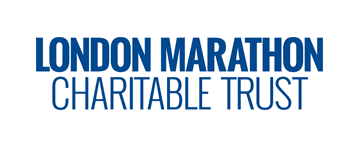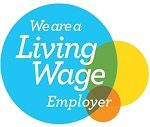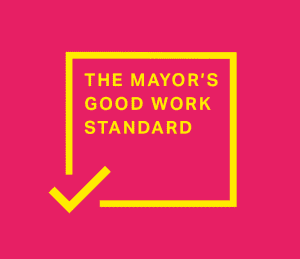Adapting to the new reality: insights from East London

Jim Minton reflects on how we’re adapting to the current sitaution and what more can be done to address the needs emerging in this crisis.
All of us are facing anxiety, fear and dislocation, particularly those of us who were already facing hardship. Communities, the local authority, charities and others have responded urgently and collectively to the crisis around us. The team at Toynbee Hall has been part of this response, and we’ve been working with many others in East London to do all we can to meet the changing and spiralling need while keeping ourselves and those around us as safe as we can.
We want to share what we have learned so far from the experience of those who are coming to us and our partner organisations, so we can learn even faster together. Government, businesses and local authorities are reacting rapidly and have already made significant policy changes, many of which are very helpful. Where we think more should be done, we will say so – and we strongly support calls for crisis grants and more generous and flexible benefits to get people through this, while recognising that we are all working in a period of almost constant change.
We have had to adapt quickly, and it is still work in progress. But all of our advice services are now on the phone and on line, including a new webchat services for our Debt Free London partnership. We’re reimagining how a community centre and the support it provides can work virtually. We’ve been calling, reaching out and engaging volunteers to make (safe) contact in the community and provide essential outreach, as well as being closely connected into the Council’s efforts, mutual aid groups and other partnerships. And having a staff team and volunteers who speak many languages and come from different communities has been a vital asset in uncovering differing need.
Food security
People are anxious about food. We are working with Tower Hamlets Council, who are co-ordinating urgent local deliveries. There is a huge effort from many organisations, with spontaneous community support groups playing a vital role. I spoke to a gentleman who’d had a delivery a week ago, but had no idea when his next supplies were going to arrive. It was good we were able to help him, but it’s clear that a London-wide strategy on food security, with local authorities, food stores and civil society is urgently needed. Medicine and prescriptions are similar issues with increasing numbers affected.
Hospital discharge
This is a big worry. With an understandable need to free up beds there’s fear that social care assessments and proper arrangements may be a struggle, leaving already vulnerable people at risk. Many people and organisations in and around the NHS are working incredibly hard to manage this, but an already stretched care system is obviously under strain. In the short term, the huge new cohort of volunteers should help – while longer term the often promised fundamental rethink of health and social care cannot come quickly enough.
People’s right to stay in their homes
While lots of us are adapting to being in our own homes more of the time, others are still worried about even having somewhere to live. This isn’t only about rights: if tenants are evicted, as well as their obvious distress and hardship, the virus will spread faster. The government has recognised this and the latest restrictions on eviction are very welcome. In the community around us, many live in overcrowded conditions and insecure homes, and are rightly fearful as a result. Mortgage holidays will decrease the pressure on landlords to look for new tenants. More will undoubtedly be needed, however, to reassure and support people who are uncertain and in need.
Stop chasing payments
It is hard to gauge exactly what demand for debt advice will be over the coming weeks. But our advisers are already hearing from people who never thought they would be facing a crisis. We’re taking calls from contract workers and freelancers suddenly without any work or income. While the government has made some commitments, more are needed. Local authorities can give reassurance that they will suspend late Council Tax payment charges and recovery action immediately. Lenders, social landlords, energy companies, TV License authorities and others who are chasing payment should observe a moratorium for at least three months. We’re encouraged by what we are hearing from many authorities and companies. It would just be so much easier and clearer for everyone if these were blanket provisions.
A credit reference amnesty
We are also hearing from people who are anxious they may default on payments, but are scared to stop making them because of their credit rating. A credit reference amnesty would change this: if you default or don’t pay during this period due to a drop in income, the crisis is taken into account and doesn’t affect your long-term credit score. As things get back to normal it will be vital that people can access credit and financial services; healthy credit scores will be essential to that.
Support better technology
Technology is already helping hugely, through cheap and easy to use platforms. But too many people do not have broadband, do not have devices, and even when they do, they don’t have the skills or confidence to use them.
We need an urgent plan to provide broadband, equipment and technical support to people who currently don’t have these things. This will take time, but would be a game changer for the way that we engage and connect with our whole community.
There are so many challenges it is sometimes hard to know where to start. But the spirit of connection and collaboration across communities has been brilliant. And the response of voluntary sector funders and supporters has been heartening – and we hope very much that the government will soon do more financially to protect our vital civil society at this time.
There are huge financial risks for charities, and enormous pressures on all of us, and our local authority and government partners. So continued support is vital – and particularly support is needed to assist those most in need: people with no recourse to public funds; people at risk of homelessness; people living in fear or excluded for one reason or another. But if we all point in the same direction; and if government, business, local authorities and charities all commit to not being bound by how things were, but instead by how things need to be, then we can get through this. And, perhaps, come out stronger.





















